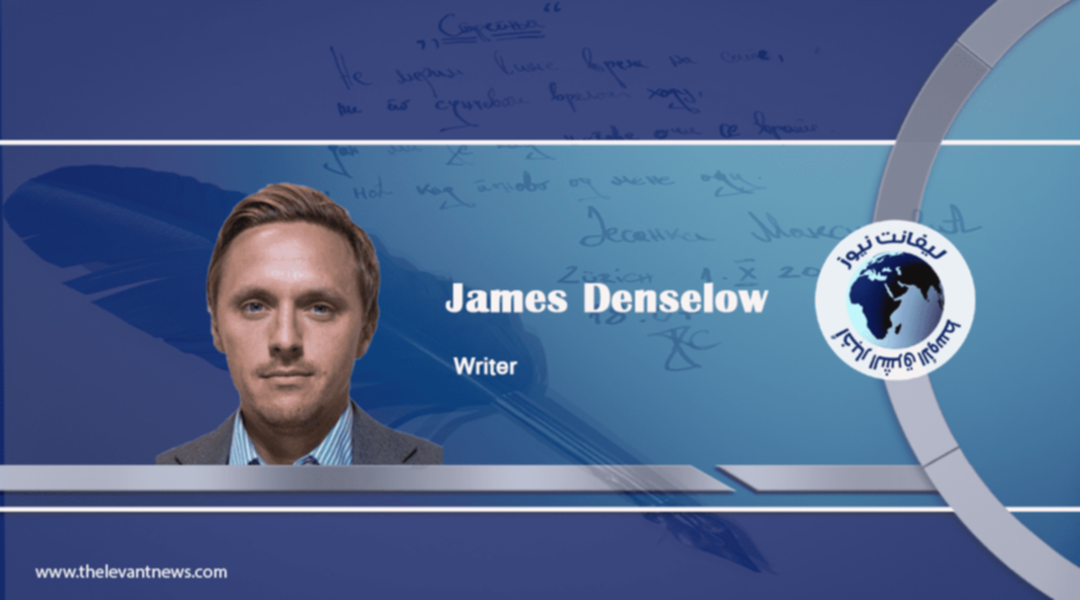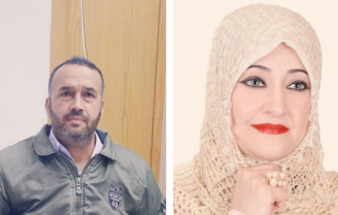-
The EU's Syria Fatigue

Syria, after ten years of tortuous conflict, is safe. That is if you listen to the Danish Government who to the fury of many has suggested that Syrian refugees within its borders should return home. Around 500 Syrians have been thrust into a position of uncertainty and fear as Denmark prepares to cancel temporary residence permits
Around 32,000 Syrian refugees have settled in Denmark since 2011 and despite the country not formally recognising the Assad Regime in Damascus it has states that “the general security situation in the area in and around Damascus has improved to such an extent that the need for protection for persons who are not individually persecuted … has ceased to exist.” Yet without official diplomatic relations with Syria Denmark cannot forcefully repatriate people if they refuse to leave voluntarily.
The fact that Denmark has a left of centre Government has surprised observers further, yet this decision is simply the latest in a spectrum of increasing apathy that has clouded the Syria issue. A decade on from the start of events and the security of President Assad in power, backed by a deep and seemingly committed alliance of Russia and Iran, is seemingly guaranteed. The Syrian leader can look forward to the confirmation of another ‘election’ and can also be thankful to have recovered from Covid too.
Meanwhile European countries are peripheral to events in the country more than ever before. The politics of peace in the country have moved on from the Geneva processes to a Russian-led Astana one. The mismatch between humanitarian needs and resources is greater than ever. The winding up of large-scale anti-ISIS operations means that their primary concern is around the future status of Syria’s refugee population in the region and of course in their own neighbourhood.
The routes from the Middle East to Europe for Syrian refugees have been effectively closed for some time now. Syria’s borders are essentially shut to large scale movement and the regional restrictions on movement means that potentially deadly trips by sea are the only feasible way of reaching a place of greater safety. Europe’s reticence as to receiving more refugees has only been exacerbated by the Covid pandemic which has altered the risks around people moving across borders like never before.
Despite the fact that over 80% of Syria’s refugees are being hosted by the country’s neighbours, Europe is failing Syrians doubly over by enacting such tough restrictions against their wider movement into Europe as well as not supporting the neighbours well enough to ensure that Syrians and the host community they live amongst are looked after.
Syria is seen as too intractable, too complex and with levels of investment from Europe’s opponents that are too high to effectively counter. Europe’s publics see a conflict with no good guys and as their own economies struggle with Covid and pre-existing pressures on their public services, are less supportive of spending resource abroad. There is apparently no political benefits for prioritising Syria but there are plenty of downsides.
As the situation in Denmark demonstrates, even Governments of political persuasions more traditionally sympathetic to humanitarian concerns are moving in decidedly negative directions on the Syria front.
Syria needs to have a strategic reboot across Europe with the EU perhaps best placed to lead efforts to realise that a piecemeal and negative by default approach doesn’t bring much to the table. A recent report by the EU's Malta-based European Asylum Support Office (Easo) said forced conscription was among the top reasons for Syrians not to return. This narrative needs to be given greater prominence and the European public should be given the opportunity to get on board to a campaign that doesn’t push for Syrians to be returned to become cannon fodder.
An EU 2.0 position on Syria requires a narrower approach that is more sensitive to what the EU can and can’t do as well as to what it should and shouldn’t do, on moral, legal and strategic grounds. Rather than putting its hands on its ears and pretending that the conflict is no more, nor any concern of the EU and recalibration is needed to bring sensible thinking to some of the most difficult questions that continue to swirl around the conflict. Without this the apathy will metastasise into a more negative drift and examples like what’s happening in Denmark could become the ‘new normal’.
by: James Denselow

You May Also Like
Popular Posts
Caricature
BENEFIT AGM approves 10%...
- March 27, 2025
BENEFIT, the Kingdom’s innovator and leading company in Fintech and electronic financial transactions service, held its Annual General Meeting (AGM) at the company’s headquarters in the Seef District.
During the meeting, shareholders approved all items listed on the agenda, including the ratification of the minutes of the previous AGM held on 26 March 2024. The session reviewed and approved the Board’s Annual Report on the company’s activities and financial performance for the fiscal year ended 31 December 2024, and the shareholders expressed their satisfaction with the company’s operational and financial results during the reporting period.
The meeting also reviewed the Independent External Auditor’s Report on the company’s consolidated financial statements for the year ended 31 December 2024. Subsequently, the shareholders approved the audited financial statements for the fiscal year. Based on the Board’s recommendation, the shareholders approved the distribution of a cash dividend equivalent to 10% of the paid-up share capital.
Furthermore, the shareholders endorsed the allocation of a total amount of BD 172,500 as remuneration to the members of the Board for the year ended 31 December 2024, subject to prior clearance by related authorities.
The extension of the current composition of the Board was approved, which includes ten members and one CBB observer, for a further six-month term, expiring in September 2025, pending no objection from the CBB.
The meeting reviewed and approved the Corporate Governance Report for 2024, which affirmed the company’s full compliance with the corporate governance directives issued by the CBB and other applicable regulatory frameworks. The AGM absolved the Board Members of liability for any of their actions during the year ending on 31st December 2024, in accordance with the Commercial Companies Law.
In alignment with regulatory requirements, the session approved the reappointment of Ernst & Young (EY) as the company’s External Auditors for the fiscal year 2025, covering both the parent company and its subsidiaries—Sinnad and Bahrain FinTech Bay. The Board was authorised to determine the external auditors’ professional fees, subject to approval from the CBB, and the meeting concluded with a discussion of any additional issues as per Article (207) of the Commercial Companies Law.
Speaking on the company’s performance, Mr. Mohamed Al Bastaki, Chairman BENEFIT , stated: “In terms of the financial results for 2024, I am pleased to say that the year gone by has also been proved to be a success in delivering tangible results. Growth rate for 2024 was 19 per cent. Revenue for the year was BD 17 M (US$ 45.3 Million) and net profit was 2 Million ($ 5.3 Million).
Mr. Al Bastaki also announced that the Board had formally adopted a new three-year strategic roadmap to commence in 2025. The strategy encompasses a phased international expansion, optimisation of internal operations, enhanced revenue diversification, long-term sustainability initiatives, and the advancement of innovation and digital transformation initiatives across all service lines.
“I extend my sincere appreciation to the CBB for its continued support of BENEFIT and its pivotal role in fostering a stable and progressive regulatory environment for the Kingdom’s banking and financial sector—an environment that has significantly reinforced Bahrain’s standing as a leading financial hub in the region,” said Mr. Al Bastaki. “I would also like to thank our partner banks and valued customers for their trust, and our shareholders for their ongoing encouragement. The achievements of 2024 set a strong precedent, and I am confident they will serve as a foundation for yet another successful and impactful year ahead.”
Chief Executive of BENEFIT; Mr. Abdulwahed AlJanahi commented, “The year 2024 represented another pivotal chapter in BENEFIT ’s evolution. We achieved substantial progress in advancing our digital strategy across multiple sectors, while reinforcing our long-term commitment to the development of Bahrain’s financial services and payments landscape. Throughout the year, we remained firmly aligned with our objective of delivering measurable value to our shareholders, strategic partners, and customers. At the same time, we continued to play an active role in enabling Bahrain’s digital economy by introducing innovative solutions and service enhancements that directly address market needs and future opportunities.”
Mr. AlJanahi affirmed that BENEFIT has successfully developed a robust and well-integrated payment network that connects individuals and businesses across Bahrain, accelerating the adoption of emerging technologies in the banking and financial services sector and reinforcing Bahrain’s position as a growing fintech hub, and added, “Our achievements of the past year reflect a long-term vision to establish a resilient electronic payment infrastructure that supports the Kingdom’s digital economy. Key developments in 2024 included the implementation of central authentication for open banking via BENEFIT Pay”
Mr. AlJanahi concluded by thanking the Board for its strategic direction, the company’s staff for their continued dedication, and the Central Bank of Bahrain, member banks, and shareholders for their valuable partnership and confidence in the company’s long-term vision.
opinion
Report
ads
Newsletter
Subscribe to our mailing list to get the new updates!






















